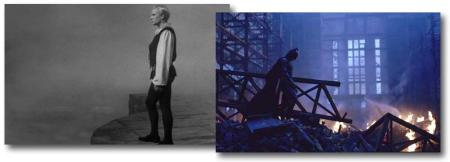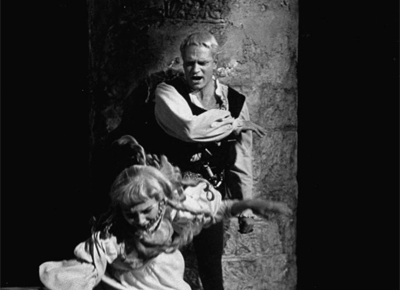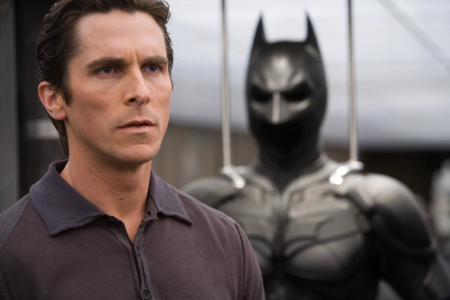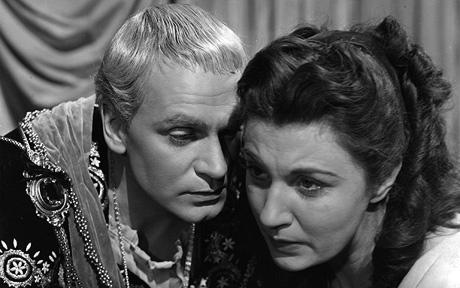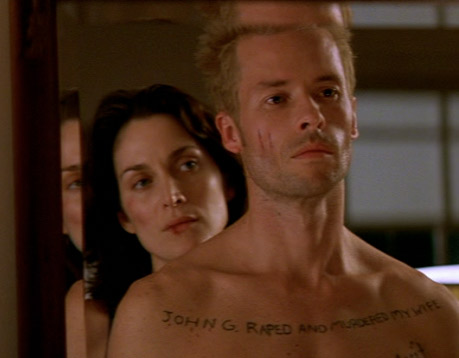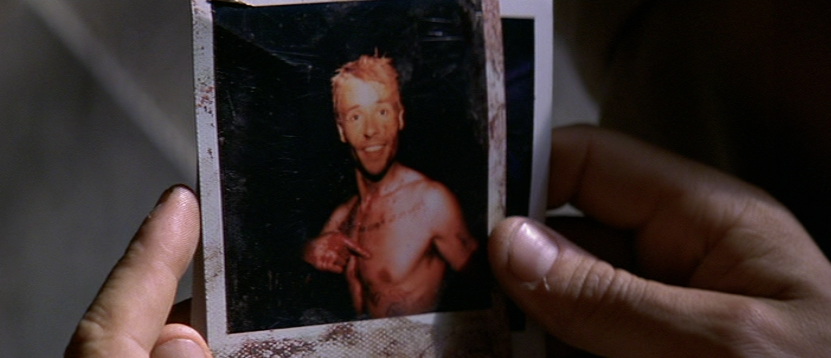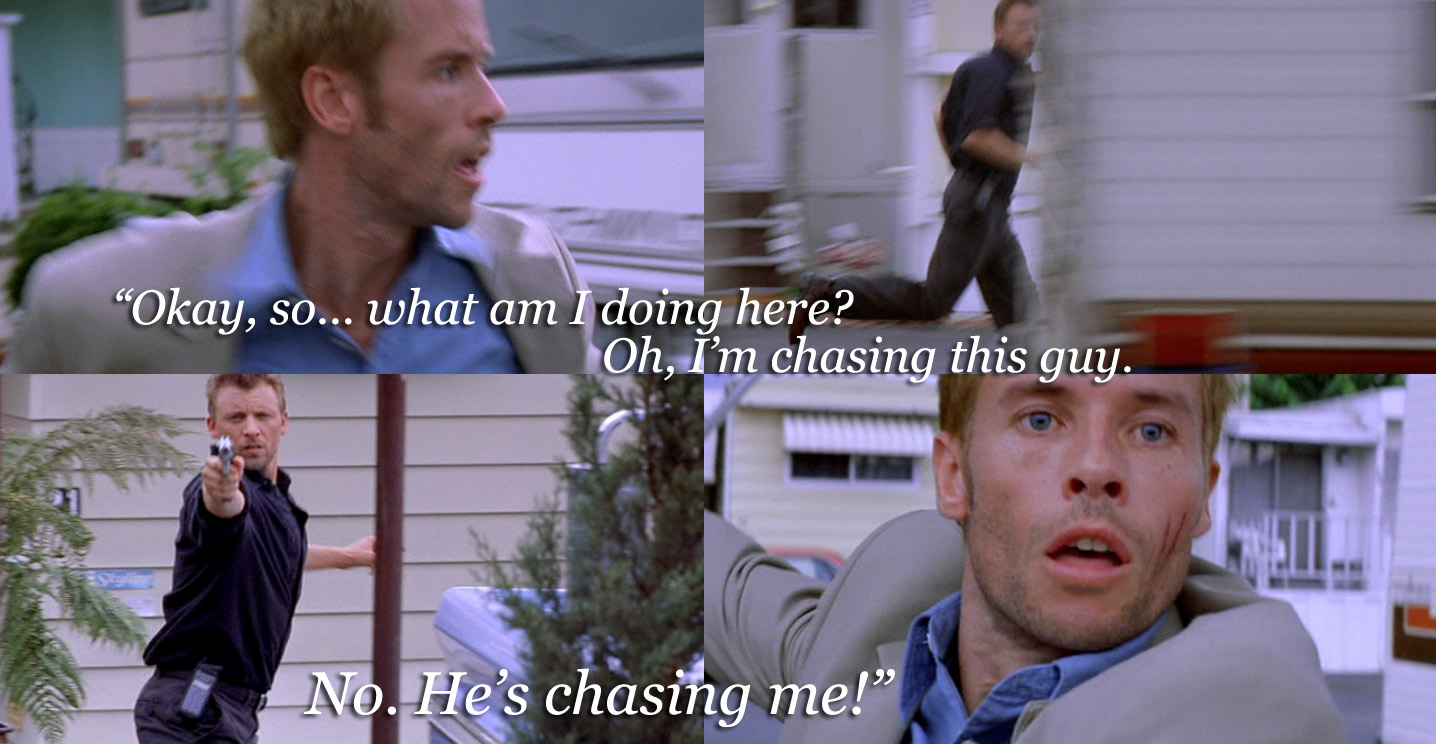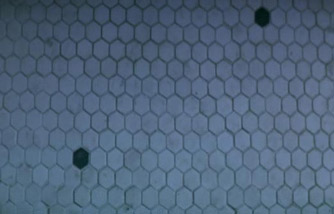Yes, No, Maybe So: "The Dark Knight Rises"
 Monday, December 19, 2011 at 10:39PM
Monday, December 19, 2011 at 10:39PM It's our practice to break trailers down to their components which make us eager / annoyed / unsure. But for this sort of event we're aware we're supposed to be all YES, already in the (bat) tank. But let's break this down anyway. Batman would surely appreciate the importance of rituals and this is how we do.
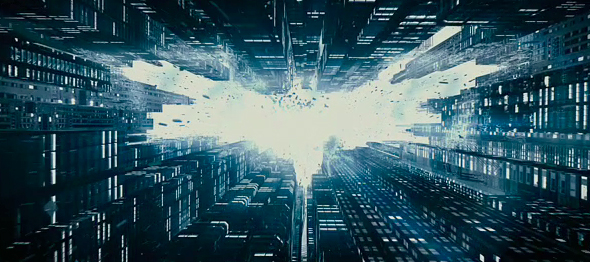 The Greatest Logo in the History of Super Logos
The Greatest Logo in the History of Super Logos
YES
- That friction between Anne Hathaway's menacing whispers and that young choirboy's national anthem is perfect. But then Chris Nolan movies are always good with the sound.
- The chanting at the end is also hot: Best Sound Editing #2 here we come.
- Oooh Escher-like staircases inside. Where are we? Let's go to there.
- The brief glimpses of Inception players Joseph Gordon-Levitt and Marion Cotillard are welcome. Because movie trailers are future movies invading our dreams, right? Come on in.
- Anne Hathaway's Hepburn hat. This is so girly for a Nolan movie. They better bring it with Catwoman. That's sacred ground!
- I'm fond of the trailer's and possibly the movies interest in vertical points of view rather than horizontal spaces. Batman should be vertiginious. He is Gotham City.
- It also makes me happy that he is fighting during light snow flurries for some reason.
- That collapsing football field is sick. Also reminds me of Sunnydale as sinkhole at the end of Buffy the Vampire Slayer. And anything that reminds of Buffy...
- "Ward" the quarterback, eh? I hope that's a Dick Grayson/Robin injoke because these movies need a few jokes.
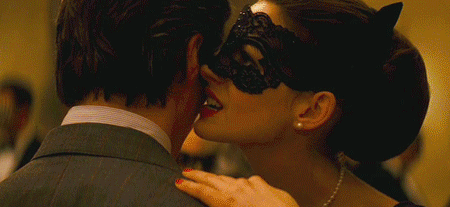
NO
- Football? for a second I thought I was watching the wrong trailer.
- Ugh where is Aaron Eckhart?! I feel cheated.
- Um... Anne Hathaway doing Catwoman at a masked ball? Is this a Batman Returns homage? I'm not sure I'm comfortable with this. I love me some Hathaway but #PfeifferPforever. Don't risk direct comparison!
MAYBE SO
- Christian Bale looks so haggard. Is this an intriguing aestethic choice or is he just bone tired from all the weight loss muscle gain flip-flopping of the past ten years?
- Speaking of weight loss/gain. Can someone give Tom Hardy a role where he is forced to lose the steroid look and the alien trapezius. He looks so much better human.
- Speaking of... what kind of voice is he doing? And will I be able to decipher the words under that mask. Covering up the best pair of male lips in the movies is such a crime!
- More politics with the Mayor and such zzz
- I'm not sure I trust Chris Nolan with political plotlines/metaphors. As I recall The Dark Knight was quite muddled in the messenging arena. And we REALLY don't need martyr heroes made of the 1% in the movies nor the 99% as angry crime mobs and that's kind of what the visuals and Catwoman's speech suggest, right? Is this Iron Lady 2: Right Wing Harder !?
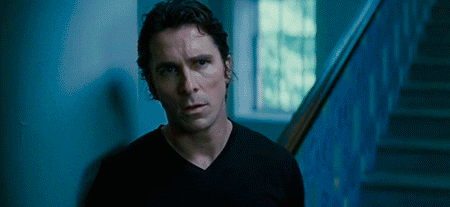
Are you a Yes, No or Maybe So?
This tweet from Matt Patches is a perfect joke about how wild people go for every glimpse of future event movies, particular movies by the blogosphere's favorite human person director Chris Nolan.
Hee.
So perhaps for this one we should just ask how much of a "Yes" you are?
And since we've got Oscar on the brain (tis the season) why don't we go there, too, in the comments. Batman Begins received one nomination (Cinematography) and The Dark Knight eight bids with two wins (Supporting Actor and Sound Editing). What's the ceiling for this one without the elevating force of Heath Ledger (RIP) but with the momentum of this franchise's epic epicness and ever expanding Nolan mania ?





